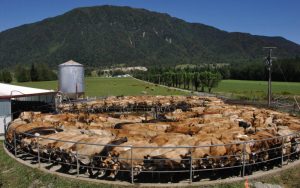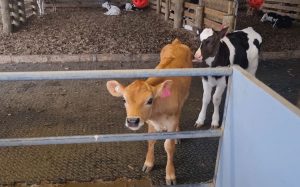
Testing in July threw up 45 bulk tank milk (BTM) detects, mainly in the North Island.
In July 2020 there were none.
While the programme does not forecast monthly BTM testing, the number at this time of the year is much higher than anticipated, M Bovis programme director Stuart Anderson said.
The number of North Island detects also raises alarm given, there have been no confirmed infected properties in the North Island for more than 12 months.
Anderson says it is important to note that these are not confirmed infections, they are detections from screening that need to be followed up.
“We have already established that 18 properties are not confirmed infected, and on-farm investigations are under way on the remaining 27.”
Anderson says the vast majority of these detects are considered low risk, returning very low detects.
“We expect the likelihood of these dairies being infected to be extremely low but the cost of leaving undetected infection is too high, especially at this point in our efforts,” he said.
The programme is closely looking at the testing history and the on-farm and sample management practices associated with the dairies that have returned the detects and comparing the information with data collected over the previous two years.
“This will tell us whether these detects are something different happening this season and whether we can expect to see it in future milking seasons.
“This is an opportunity to stress that we’re not out of the woods yet and while things are going well, there is more work to do,” Anderson said.
The BTM testing screens milk samples monthly from all milk suppliers.
The beef surveillance programme has to date sampled 435,000 cattle from more than 14,000 farms with no infected farms found.
Currently there are just three confirmed infected properties, all of which are part of the Canterbury cluster.
Meanwhile NZ’s biggest feedlot, Five Star Beef near Ashburton, is destined for a shutdown to be cleared of the disease which was confirmed on the property in 2018.
The feedlot’s owner, Anzco, is working closely with the M bovis programme to mitigate risk while planning the depopulation that has no set timeline yet.
Anzco general manager systems and supply Grant Bunting says the depopulation and cleaning of the feedlot was always going to be part of the final push to eradicate the disease.
“But MPI need to be completely satisfied there is no other infection anywhere in the country before tackling the feedlot, this BTM aspect may even push that out,” Bunting said.
He says despite reports suggesting the feedlot depopulation will happen shortly, this is not the case.
“Over the past 12 months we have become more aware the feedlot will be depopulated, but it is not imminent.
“We take a view we will have to decline numbers and at some point, we will have no cattle.
“We have got a plan but it’s yet to be sanctioned by MPI,” Bunting said.
“Part of the plan is we take a position of support and responsibility, for our growers, our suppliers, staff, markets – it’s huge and complex, and compounded for Anzco because of its scale.
“As part of the plan we also have to look ahead to re-population.
“We have given assurance to farmers and growers that we will honour our obligations – we are coming back, it’s not the end.”
Bunting expects the feedlot will be shut down for six to nine months.
We understand because of our scale we have a big role to play, and I would have to say the biggest challenge has been rhetoric around the Canterbury cluster, and the rumour and scuttle-bug in the community.
Five Star Beef is a key part of the local economy, with 300 associated jobs and generating $40 million annually to regional GDP.
Annually the feedlot takes up to 40,000 cattle from across the country and more than 50,000 tonnes of grain and 18,000t of maize from local suppliers.
Anzco supplies premium grain-finished niche export markets in Asia, mainly Japan, with growing interest in the Middle East.
“We have to be considerate in what we can do to mitigate some of the impact on all of this,” Bunting said.
























